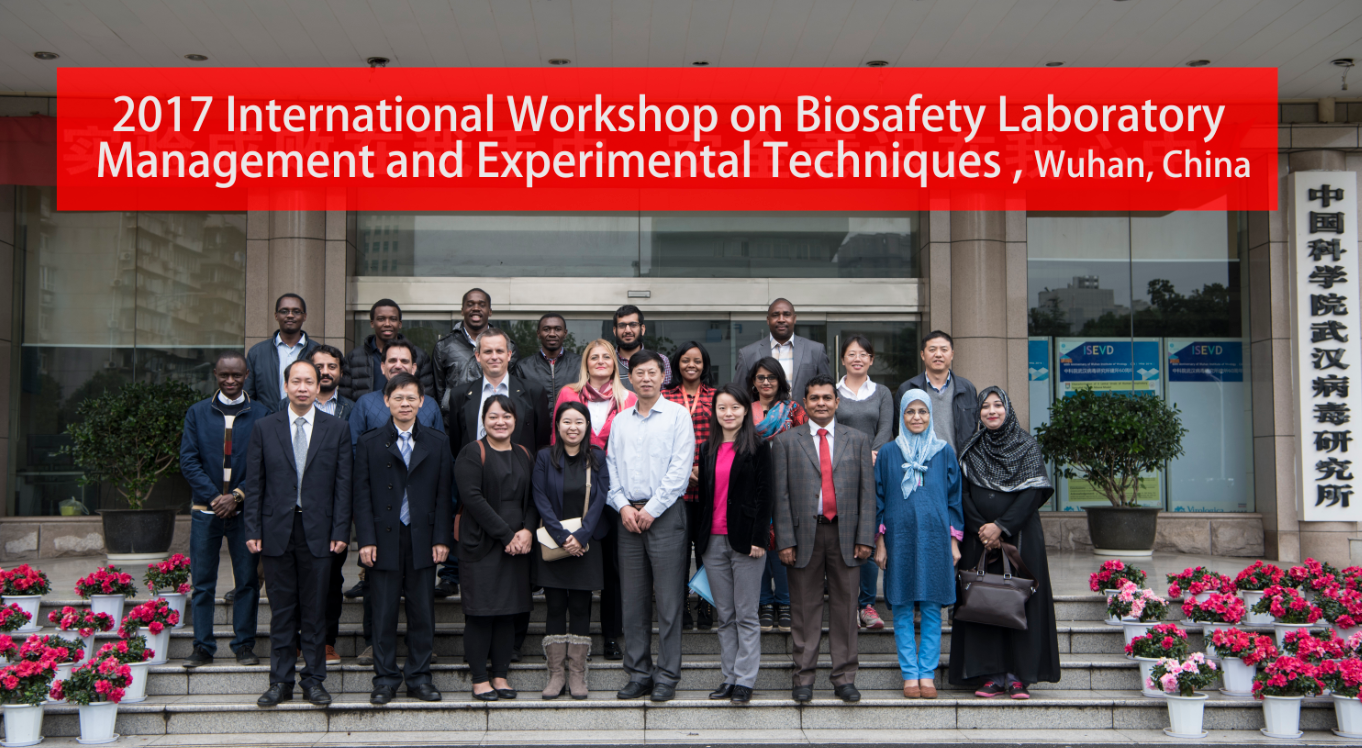2017 International Workshop on Biosafety Laboratory Management and Techniques, held by Wuhan Institute of Virology, CAS
On October 18 - 28, the 2017 International Workshop on Biosafety Laboratory Management and Techniques was held by Wuhan Institute of Virology, Chinese Academy of Sciences (CAS), in Wuhan, Hubei Province. More than 20 participants from China, Pakistan, Kazakhstan, Thailand, Sri Lanka, Egypt, Kenya, Serbia, Hungary and other countries and regions attended the workshop.
At the opening ceremony, Mr. Zhang Shizhuan, the Director of Division of Asian and African Affairs in Bureau of International Cooperation, CAS, extended a warm welcome to all the guests who participated in the workshop. He pointed out that the immediate, effective response against emerging infectious diseases and the safeguarding of laboratory biosafety are the targets and responsibilities that are shared by the governments and scientists of all the Belt and Road Initiative (BRI) participating countries; led by the Initiative, CAS will promote these countries to cooperate in the international science and technology in the field of biosafety; the workshop was expected to train key medium and senior technical personnel in the study on prevention and control of infectious diseases for the relevant countries and regions and make contributions to the human health cause.
In this workshop, the senior experts from Wuhan Institute of Virology and Institute of Laboratory Animal Sciences, Chinese Academy of Medical Sciences (CAMS) were invited to provide instructions for the participants on six theoretical courses and two practical contents. The theoretical courses consist of the courses on the six fields of biosafety laboratory introduction, laboratory management system, biorisk assessment, high pathogen and the related pathology, the biosafety laboratory protection grades of key facilities as well as the virus resource culture collection, transportation and management. The two practical contents are biosafety operation regulations and animal experiments.
The workshop was held by the support of the Wuhan National Biosafety Laboratory, CAS, based on the Sino-Africa Joint Research Center and Southeast Asia Biodiversity Research Institute of CAS as well as the Pasteur Network. It was designed for the management, scientific research and technical personnel from all over the world, especially developing countries who undertake biosafety management and plan to carry out scientific research activities in biosafety facilities, in order to provide a platform for them to learn biosafety-related theoretical knowledge and operation skills thoroughly. The acquired experience from the workshop is not only good for the participants’ study on biosafety but also lays foundation for the further expansion of international cooperation channels and the establishment of partnership between them.
